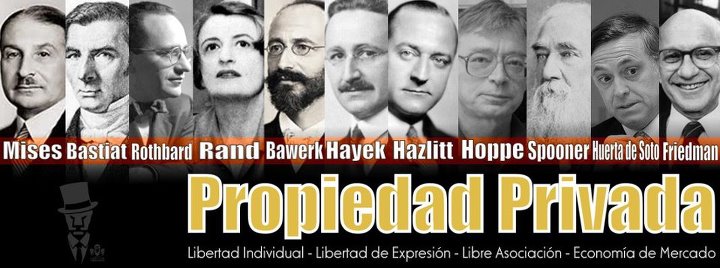Monarchy and development
The case of Liechtenstein
The case of Liechtenstein
Jaime Luis Zapata
The Princely House adds a private element to Liechtenstein's political structure, to its Constitution.
In the first place, we can mention that the House offers autonomy and independence to the government, which also adds the perspectives of a long term interest.
Regarding this, Hans-Hermann Hoppe says:
A private government owner will tend to have a systematically longer planning horizon, i.e., his degree of time preference will be lower, and accordingly, his degree of economic exploitation will tend to be less than that of a government caretaker; and subject to a higher degree of exploitation, the nongovernmental public will also be comparatively more present oriented under a system of publicly owned government than under a regime of private government ownership.
Also, HSH Hans-Adam II of Liechtenstein sustains that:
More important than the model of government is the question of whether a long-term component, independent of party politics, should be introduced into the political system of a state, in the form of a strong hereditary monarchy like that of the Principality of Liechtenstein. A hereditary monarch is under no obligation to the different parties, and he does not have to take elections into account. Instead, he can concentrate on the long-term welfare of the state and its population. In the Principality of Liechtenstein it has been possible to pursue long-term policies over generations to the benefit of the state and its people. A positive and close cooperation between the different generations of the ruling family has been essential for this.
Plus, a monarchy with a private wealthy house is oriented to the generation of wealth and protected from squandering. It reduces the possibility that the people be bribed with the state's resources, since the power of the monarchy cannot be changed of hands, unlike in a democracy, where power is transferred to he who offers more to his coalition. In monarchy, power is out of competition. Since the Princely House money is unredistributable, this allows for a sure basis of accumulated capital that cannot be squandered or taken away, and that is available for wealth creation.
Regarding this, Anthony de Jasay says:
The maximin-type safety of the democratic system provided by the government having to face the expiration of its tenure at regular intervals is paid for with a heavy price. Capital accumulation and investment tend to be lower, structural adaptation meets more resistance and budget deficits are more chronic in democracy than in some, though of course not all, non-democratic systems. One need not select such extreme examples as France or Spain compared to Korea, Singapore or Indonesia to perceive the general tendency.
Diverting income from corporations and the well-to-do who save much, to wage-earners and the needy who save little, reduces the rate at which the capital stock is increasing and hence also the rate at which the demand for labour increases, wages rise and jobs are created. (...) Labour rose from misery thanks to being too weak to be able to depress high profitability and hence the rapid accumulation of capital.
The Princely House has its own rules of succesion and family, and its financed by itself, not depending on tax revenues. Since it also has a strong economic gravity, it also has a great influence on politics. It is like a private fortress, of which Schumpeter spoke about.
The monarch is not an overreaching power, however. It is a contract between oligarchy (parliament), democracy (specially at the local level) and the monarchy. Each with responsibilities and rights. As, HSH Hans-Adam II of Liechtenstein says:
We in the Princely House are convinced that the Liechtenstein monarchy is a partnership between the people and the Princely House, a partnership that should be voluntary and based on mutual respect. As long as we in the Princely House are convinced that the monarchy can make a positive contribution to the country and its people, that a majority of the people desire this, and that certain conditions are fulfilled, such as the autonomy of our family as established in our house law, we shall gladly provide the head of state. This partnership goes back some three hundred years and it has been successful for both the Princely House and the people.
References:
Anthony de Jasay:
Government freehold property vs government leasehold property (democracy)
Democracy as destroyer of capital accumulation.
Hans-Hermann Hoppe:
Time preference and tragedy of the commons, monarchy and democracy.
HSH Prince Hans-Adam II of Liechtenstein:
The State in the Third Millennium.

